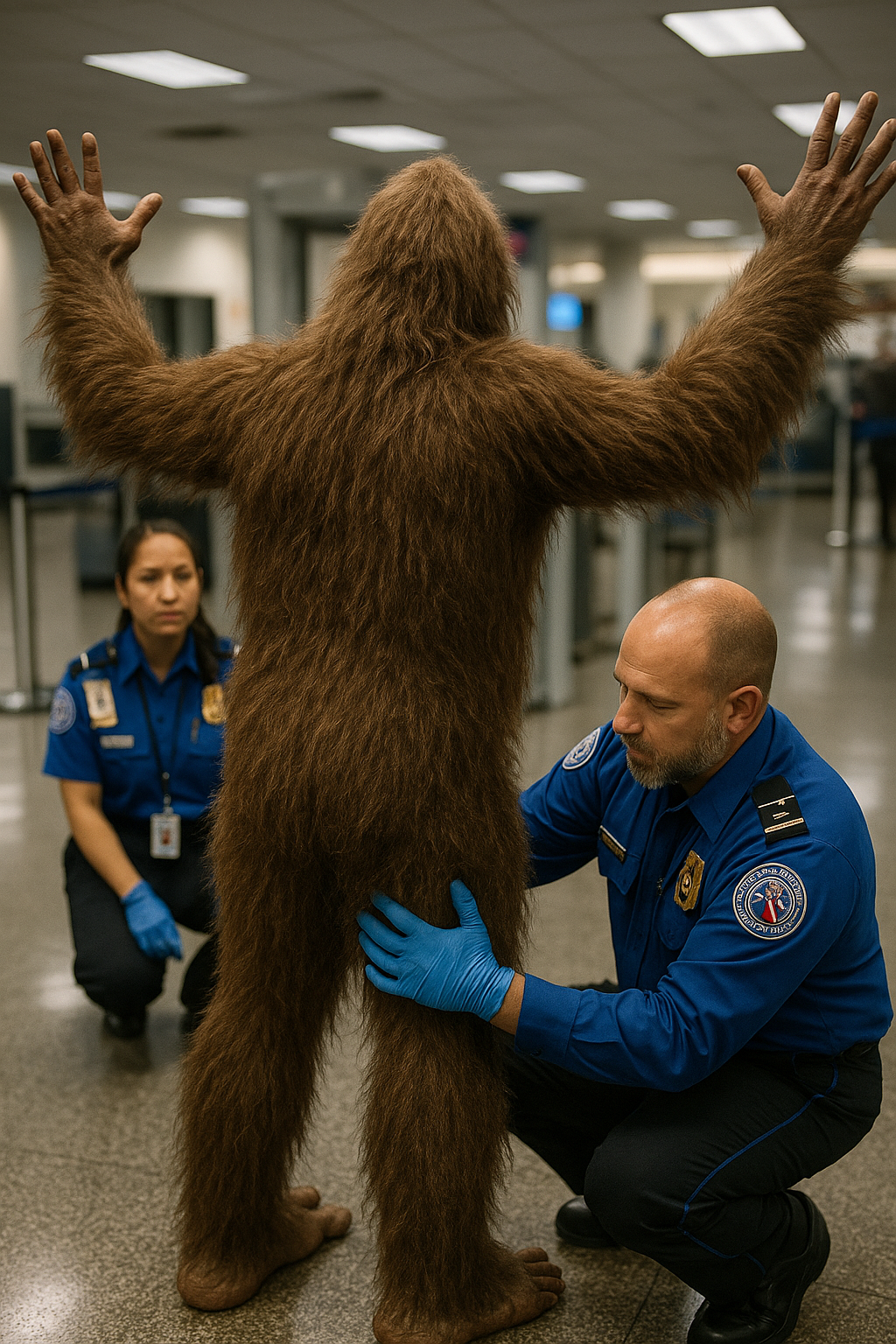DENVER – The Transportation Security Administration came under fire this afternoon when an agent became the victim of an unexpected response from a passenger who was undergoing a security screening. Without any warning, the passenger broke wind in the face of the TSA agent.
According to sources familiar with the incident, the agent was in the process of completing an inner thigh search on a passenger with an open, yet gloved palm. At the point the agent reached the top of the thigh, the familiar sound of audible flatulence filled the room. The agent backed away from the search immediately as he worked feverishly to fight off watery eyes and shortness of breath. Short of a look of relief on his face, the passenger remained unresponsive to the event.
In the past, the chances of TSA agents encountering passenger flatulence during a pat-down was somewhere between rare and never. With the rollout of the enhanced pat-down procedures by the TSA this last week, the statistical odds are now leaning in favor of agents being subjected to such treatment again have increased.

“The entire procedure itself is quite aggressive.” said an unnamed source within the TSA. “People have been known to experience gas in situations where they feel nervous or out of control. Given the nature of an agent bent down on one knee with a one hand on the passenger’s hip and the other one placed in the genital area, it’s no surprise the subject reacted the way he did.”
The event was so much expected, that the TSA had even advised it’s agents that the possibility was there for passengers to lose control of their bodily functions in the process of being screened.
The enhanced pat-down techniques now employed by the TSA come as a result of the agency’s introduction of full body scanners in airports nationwide. The new scanners are designed to identify any weapons which the passenger may be attempting to smuggle onto an airplane. A need for such scanners was determined to be necessary after a man on a Detroit bound plane attempted to ignite an explosive material packed into his underwear last December. Although more effective and cost efficient means for identifying such terrorist attempts were suggested at the time, members of the administration along with the Department of Homeland Security and the Transportation Security Agency opted to rely on technology which has yet to prove itself to be 100% effective 100% of the time.
The scanners are designed to see through the clothing of a passenger. Nude images of those being scanned are generated and reviewed by TSA agents at a satellite location. Procedures for the scanners dictate the pictures should not be retained, however pictures from these scans have already been posted on the internet.
Given concerns over privacy, passengers have opted not to be scanned. The trade off however, is for the TSA to employ the enhanced pat-down which is designed to identify the same weapons, chemicals, etcetera which would normally be located in the scan.
Reaction to the new rules has been largely opposed on both sides of the political spectrum. Talk radio has buzzed all week about the government overstepping its bounds and intruding on our privacy. Arguments have also been made that the rules go against the 4th Amendment as well. Calls to action have been made for passengers who travel next week during Thanksgiving should all opt out of the full body scan in favor for the pat-down. Such an effort would slow down the screening process and send a message from the American people to its government that the new rules are considered to be unacceptable.
Even still, there have been passengers who take no issue with the scans. They subscribe to the premise that giving up certain liberties in an effort to remain safe is acceptable behavior. Ben Franklin was the one that suggested that anyone who would do so deserved neither liberty nor safety.
The incident with the passenger who passed gas at the expense of the TSA is currently under review. If it should be determined the passenger committed the act on purpose, he may be subject to a fine or even prison time for assaulting the agent.






